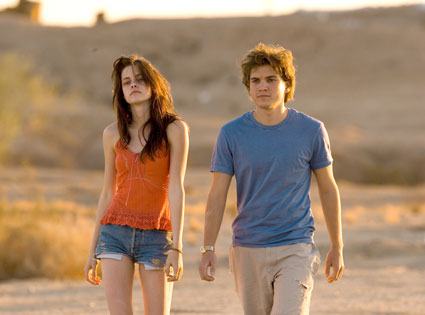127 Hours documents the story of a man who escaped to the wilderness when he could, embraced his solitude in a vast land, and, for lack of a better phrase, connected with Mother Nature before returning to civilization, at least in his traditional outings. The events of the film depict an seemingly average man who demonstrated an profound will to live. That man, Aron Ralston, still hikes, still climbs, still mountaineers; not the least bit deterred by his horrific experience in the Canyonlands of Utah.
Christopher McCandless, the focus of Sean Penn’s spectacular Into the Wild, is an amplified, almost superhuman version of Ralston. It takes an extraordinary soul to donate their savings to charity, cast off family expectations, shun the normalcy of everyday urban life, and trek to Alaska, for the sole purpose of living in the wilderness.
He does so quite casually, getting into his crappy car and driving it as far as it will go. When a flash flood (that’s right) kills it, he goes on foot, and by kayak, and by train, meeting an assortment of strangers who share his same regard for the outdoors. Eventually he arrives at his chosen destination, finds a deserted bus, and “settles down.” It is here he experiences the greatest hardships of his journey thus far, and decides to return to the many friends he made and the family he hasn’t seen for two years. Before he can do so though, nature turns him a cold shoulder.
Sure, Into the Wild features all the trademark characteristics of a technically profound film -- great direction, cinematography, scripting and an outstanding lead performance by Emile Hirsch -- but perhaps the greatest effect of the film was to completely absorb me in the story and make these things disappear in a sense. When I left the theater, it wasn’t with thoughts of how cool that shot was or how well written the dialogue was, thoughts that are so common and routine to the critic that the absence of which almost amounts to some sort of heresy in the Film Theory Bible. Instead, I found myself wondering what would’ve happened to Chris had he followed the original path laid out before him. What if he’d gone to law school like he was “supposed” to? I found myself wondering just how the bus had got to that particular location, so far up in the mountains, to eventually be found by McCandless and provide shelter and coffin for him. What happened to the people he befriended? What put them in those places at those times to meet him? These sort of questions simply don’t happen with every film I watch.
It’s a real gem when it does.